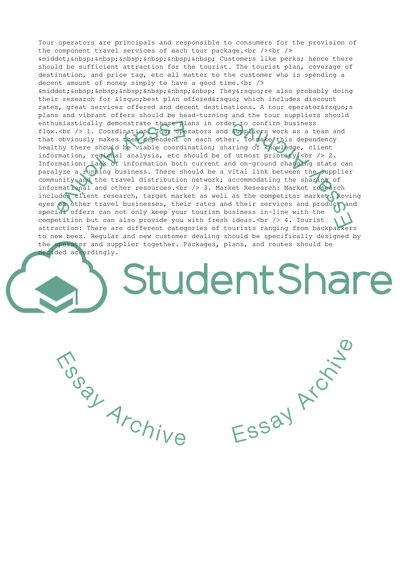Cite this document
(The Relationship between Tour Operators and their Suppliers Case Study, n.d.)
The Relationship between Tour Operators and their Suppliers Case Study. Retrieved from https://studentshare.org/business/1737785-international-tourism-business
The Relationship between Tour Operators and their Suppliers Case Study. Retrieved from https://studentshare.org/business/1737785-international-tourism-business
(The Relationship Between Tour Operators and Their Suppliers Case Study)
The Relationship Between Tour Operators and Their Suppliers Case Study. https://studentshare.org/business/1737785-international-tourism-business.
The Relationship Between Tour Operators and Their Suppliers Case Study. https://studentshare.org/business/1737785-international-tourism-business.
“The Relationship Between Tour Operators and Their Suppliers Case Study”. https://studentshare.org/business/1737785-international-tourism-business.


